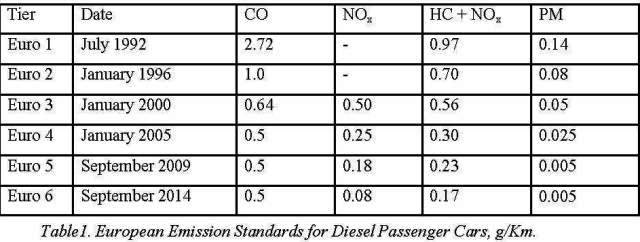By: Engr. AMINU JALAL
[dropcap]B[/dropcap]etween year 2000 and 2014, there has been a six times reduction in NOx emissions from diesel cars required by the standards. European countries, concerned with global warming, encouraged the use of diesel cars as they produce less carbon than petrol cars by cutting taxes on diesel fuel. The sales of diesel cars moved from 15% of new cars in 1990 to 25% in 1995 and 50% now. NOx and PM were to be controlled by the emission standards.
 The emission standards are tested with the vehicle stationary while the wheels are turned by a dynamometer, with speeds that mimic real life driving. It was found that these dynamometer simulations were unrealistic as results from road tests are always higher. The European Union therefore planned to start road tests in 2017.
The emission standards are tested with the vehicle stationary while the wheels are turned by a dynamometer, with speeds that mimic real life driving. It was found that these dynamometer simulations were unrealistic as results from road tests are always higher. The European Union therefore planned to start road tests in 2017.
The US Environmental Protection Agency (EPA) recently found that VW has software in its diesel cars that detect when a car is undergoing dynamometer tests and switch on the emission control system. The software will switch them off when driving on the road. The NOx emitted during road driving is up to 40 times than emitted during the test. VW was doing that probably because the use of the emission control system causes a marginal increase in fuel consumption and a marginal decrease in acceleration.

Impact on Nigeria
- The VW cheating on diesel car emissions would not have a significant impact on Nigeria because of the following:
- Only about 1% of our cars have diesel engines. VW authorised dealers do not sell diesel cars as diesel costs more than petrol in Nigeria. The available diesel cars were imported as used vehicles.
- Diesel trucks and buses are not affected.
- Our vehicle emission standards are at Euro 2 level. We could not have stricter standards as our diesel Sulphur standards, at 3,000 ppm (parts per million), could not support higher standards. We need to reduce Sulphur levels to 50 ppm. We are working with the Standards Organisation of Nigeria (SON) and other stakeholders to that effect.
*ENGR AMINU JALAL is the Director-General/CEO of National Automotive Design and Development Council, Nigeria




